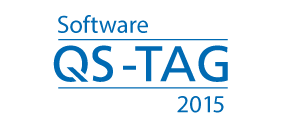16:30 - 17:15 Uhr
Managing Quality Aspects in Application Management Service Contracts (Vortragssprache: Deutsch)
Jens Borchers, Sopra Steria Consulting Hamburg
Application Management Services (also know as Application Outsourcing) has become a common strategy to hand over all maintenance and IT
operation tasks for an application or set of applications to an outside contractor aka "service provider". In many cases also near- and offshore resources will be involved to reduce overall cost.
During the preparation and execution of an application management contract both parties have a vital interest to define the boundary conditions and services of the collaboration, which is normally contracted for at least 3, in many cases also 5 or even more years, very precisely.
Besides the legal aspects of a contract the agreed scope and detailed services are the most critical topics for a successful collaboration over a long timespan. This includes in particular the detailed size and quality of the applications to be maintained and maybe also operated externally.
The lifespan of an application management contract in general comprises the following phases:
a) Defining the sourcing strategy and scoped of the planned outsourcing
b) Set up a tender process to collect bids from several potential providers ("Request for Proposal")
c) Short list the providers and enter negotiations with the last two or three
d) Sign contract and conduct transition of assets, knowledge, etc.
e) Execute contract over the agreed life span
f) If at contract expiration time the contract is not renewed and a new provider is taking over, a reverse transition has to be conducted
What does this all have to do with quality aspects, in particular non-functional one?
Basically the client wants to guarantee that the provider does not corrupt the quality of the applications over (the long) time where it is under the regime of the provider.
The provider on the other hand has to make sure that he does not "buy a pig in a poke" and has to ensure that the application has got a least the quality that it is manageable within the estimated budgets.
Therefore, during all phases listed above at least one of the contract partners has an interest in assessing and managing the overall quality of the application in scope:
- For the preparation of an outsourcing contract the client has to prepare an inventory of all application components (phases a, b)
- The potential contractors on the other hand would like to get an impression of the quality of the application to calculate their bid more precisely (phase c, d)
- Most contracts include a "due diligence" during the transition (phased) which allows the contractor to assess the quality again in detail and adjust his service fees respectively based on the results
- During the execution (phase e) of the contract the service level agreements normally include the periodic proof that the functional and non-functional quality of the application has not degraded
- At contract expiration time, a final quality assessment is conducted to verify the quality when the responsibility of the provider ended
In most case these requirements are covered by quality measurements of the software components and statistics from IT operations (like incidents, problems,etc.)
This includes non-functional metrics covering ISO 25000 quality categories and also productivity numbers based on function point calculations.
Together with statistics from ITIL-oriented IT operations both contract parties get an objective pictures of the application evolution over time, functionally and also for the non-functional aspects.

Jens Borchers, Sopra Steria Consulting Hamburg
Jens Borchers studied Mathematics, Physics and Computer Science at the University of Hamburg and received a MSc. in Mathematics. He started his professional career in the aircraft manufacturing industry at Airbus Industries.
In 1988, he was co-founder of a company specialized in reengineering large application systems. Since the mid 1980s he has managed several large reengineering projects in Germany, from the early 1990s first in collaboration and later with an own off-shore company in India.
From 2005 to 2012, Jens Borchers was member of the core application migration team at SCHUFA, responsible for software quality assurance of the new SCHUFA core system which was redeveloped from a 40-year-old host system.
Since 2012, he is working as a service manager for Sopra Steria Consulting in the application management services business and is heading large outsourcing client contracts.Jens Borchers has published several articles and books mainly in the area of reengineering and quality.
